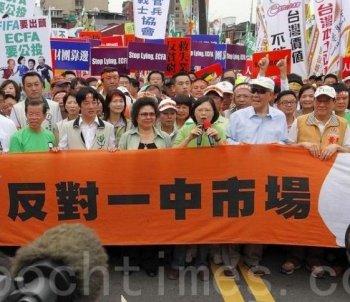The participation of Chinese state-owned companies in Taiwan’s offshore oil and gas exploration has drawn concern regarding national intelligence.
CPC Corporation, Taiwan’s state-owned oil and gas company, held an open tender for “3-D Marine Seismic Data Acquisition and Processing in the Tainan Basin,” a project with a budget of NT$940 million (US$29.4 million).
But legislator Lin Shu-fen foresees a danger in having a Chinese state-owned contractor and worries that if such a company joins the project, it could conveniently gather intelligence about naval secrets and the coastal topography from the mouth of the Bajhang to Kaohsiung, seriously endangering Taiwan’s national security.
The two companies of concern are Singapore-listed BGP GeoExplorer Pte Ltd. and Malaysia-listed COSL (Labuan) Co., Ltd.
According to CPC’s press release, its open tender notice expressly prohibits the participation of companies from mainland China. CPC spokesman Lin Maw-wen said that this project invites international tenders because there is no company in Taiwan specialized in marine seismic surveys. All of the six qualified companies, including BGP and COSL, are foreign suppliers in accordance with the Government Procurement Act.
An Offshore Trojan Horse
Lin Shu-fen said the CPC only precludes bidders based in mainland China but not those with Chinese investment. The sole shareholder of BGP is BGP Inc., a subsidiary of China’s state-owned resource company China National Petroleum Corporation (CNPC), while COSL (Labuan) is a subsidiary of China Oilfield Services, Ltd.
COSL’s registered capital in Malaysia is only one US$, while BGP’s registered capital in Singapore is only US$1,000, according to a report in Taiwan’s Liberty Times.
Speaking of paying a Chinese government-owned company NT$940 million to tender the three-dimensional marine seismic survey of Taiwan, Lin Shu-fen called it a “modern version of the Trojan Horse” at a press conference on March 30.
Another legislator Kuan Bi-Ling also expressed her concern. “Soon there will be no secrets as to where to hide submarines and where to deploy mines or torpedos. Our national security is at stake,” she said.
Although the marine seismic survey tender is outside the restricted area, Taiwan’s Ministry of National Defense did express concern that “it could still breach national security” if appropriate management measures are not adopted, according to the Liberty Times report.
BGP received internal attention for establishing a joint venture in land seismic equipment with Ion Geophysical Corp. in March. According to a report from China Petroleum Daily–a newspaper under CNPC, officials from the National Development and Reform Commission and the Energy Bureau were present at the signing ceremony in Beijing on March 27. (It is common that big state-owned corporations in China have their own media.)
In response, CPC claimed the seismic work area is 62 miles off the coast of Kaohsiung, and seismic data is CPC’s property, so it would not involve national secrets. CPC said it will continue the subsequent operations in compliance with the Government Procurement Act.
Despite the opposition, the tender winner named on April 2, COSL, made the lowest bid, with BGP the second lowest. But because the lowest bid is less than 80 percent of the estimated NT$940 million, set to insure quality, CPC is not now awarding a contract. Its spokesperson Lin Maw-wen said that the company will request that COSL provide an explanation or guarantee, according to a Central News Agency report.
Legislator Pan Meng-an criticized President Ma Ying-jeou’s government, saying that Taiwan’s Ministry of Economic Affairs had passed a general resolution on March 8 which strictly prohibited the participation of Chinese-funded suppliers in government procurement.
But judging from recent events, including this case, Ma’s government has given a free reign to the infiltration of Chinese-funded companies in a number of projects. Mr. Pan, of the opposition Democratic Progressive Party, has recently stressed China’s abuses of Taiwanese intellectual property rights, citing rice noodles which are produced in China but shipped overseas as Taiwanese.
Read the original Chinese article.


